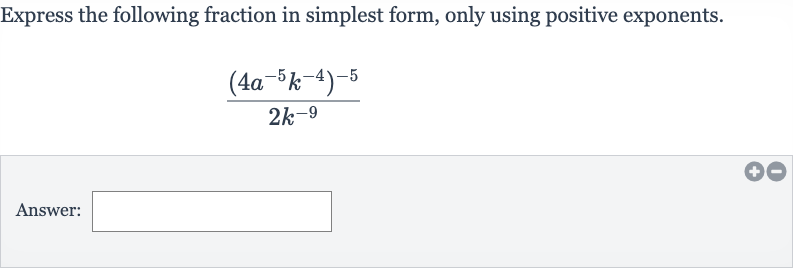AI tutor
Welcome to Bytelearn!
Let’s check out your problem:

Express the following fraction in simplest form, only using positive exponents.Answer:
Full solution
Q. Express the following fraction in simplest form, only using positive exponents.Answer:
- Write Expression, Identify Exponents: Write down the given expression and identify the negative exponents.The given expression is .We need to simplify this expression and convert all negative exponents to positive exponents.
- Apply Negative Exponent Rule: Apply the negative exponent rule, which states that , to the numerator. becomes .
- Apply Power Rule: Apply the power rule, which states that , to the numerator. becomes .
- Simplify Numerator: Simplify the numerator using the power of and the power rule for exponents. becomes .
- Apply Negative Exponent Rule to Denominator: Apply the negative exponent rule to the denominator, which states that . becomes , which simplifies to .
- Combine into Single Fraction: Combine the numerator and the denominator into a single fraction. becomes .
- Multiply Fractions: Multiply the fractions. becomes .
- Simplify Fraction: Simplify the fraction by canceling out the common terms. becomes , which simplifies to .
More problems from Multiplication with rational exponents
QuestionGet tutor help
QuestionGet tutor help
QuestionGet tutor help
QuestionGet tutor help
QuestionGet tutor help
